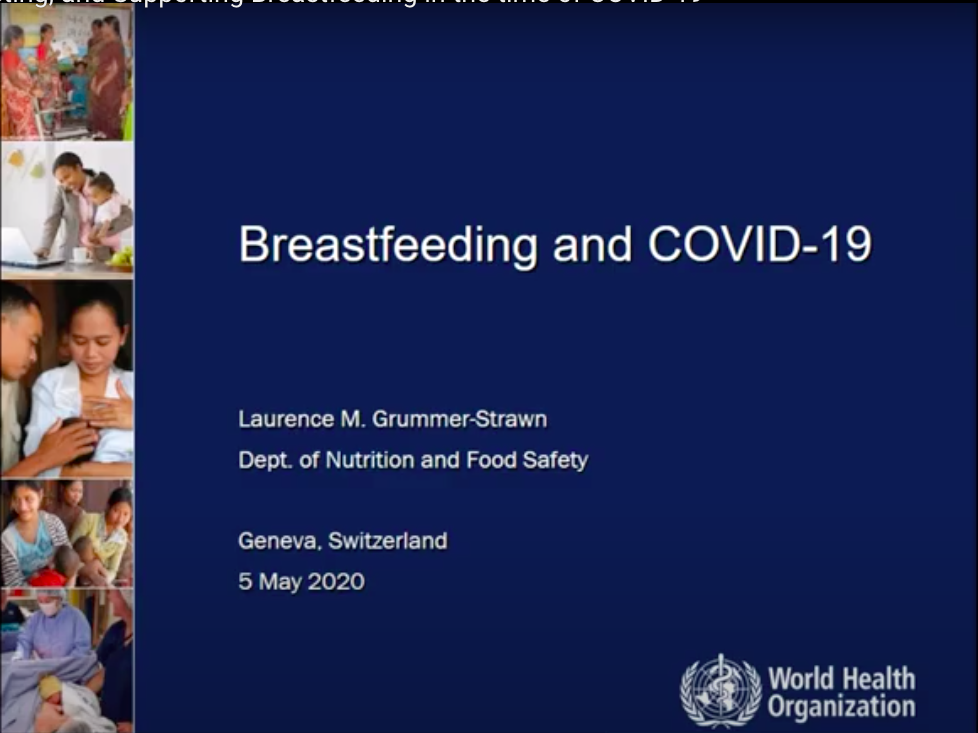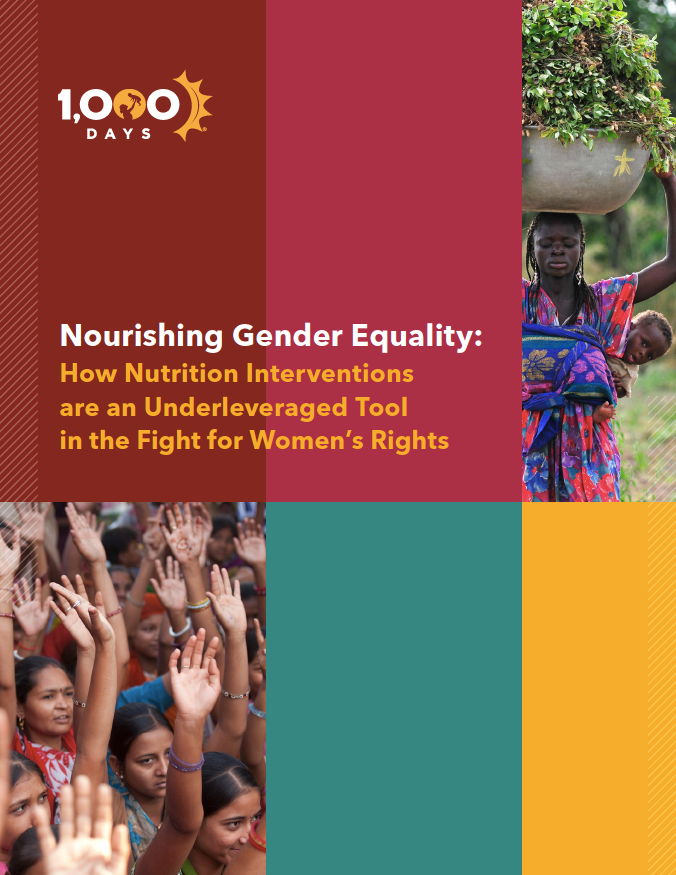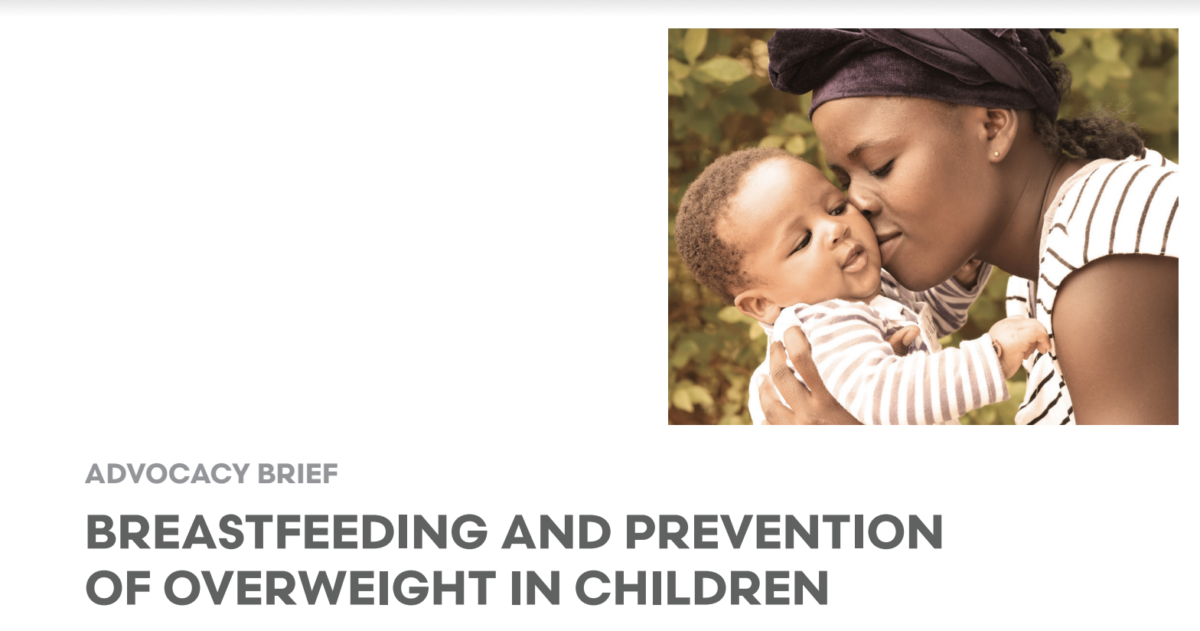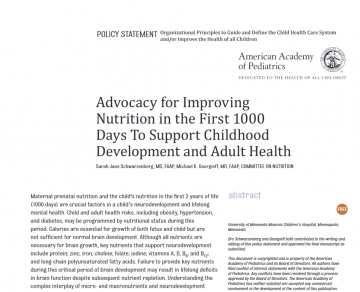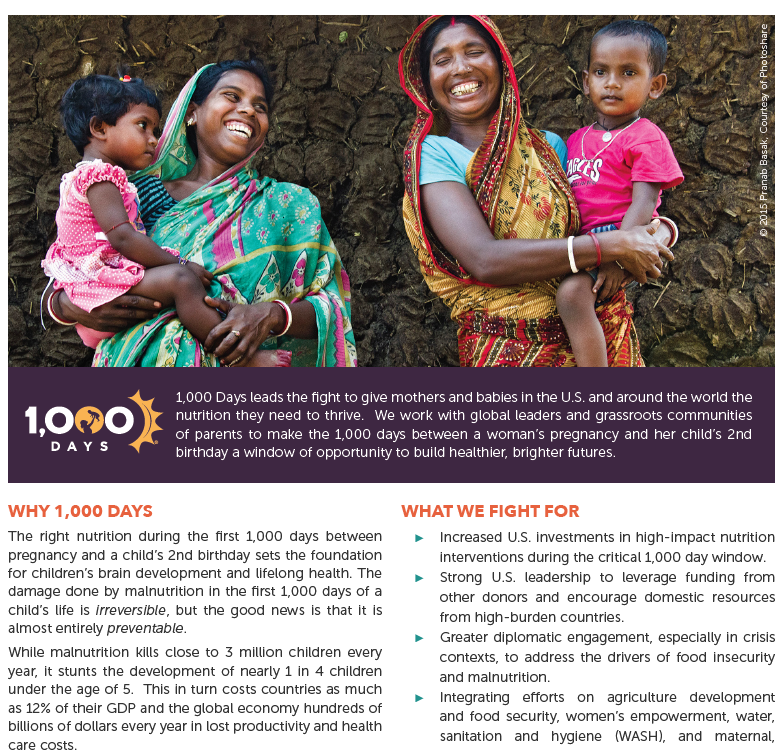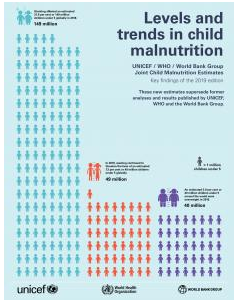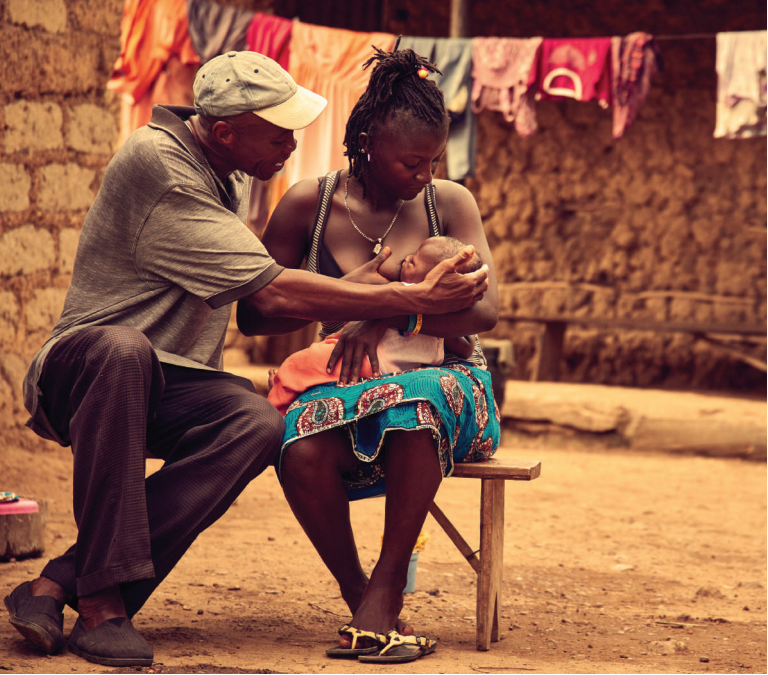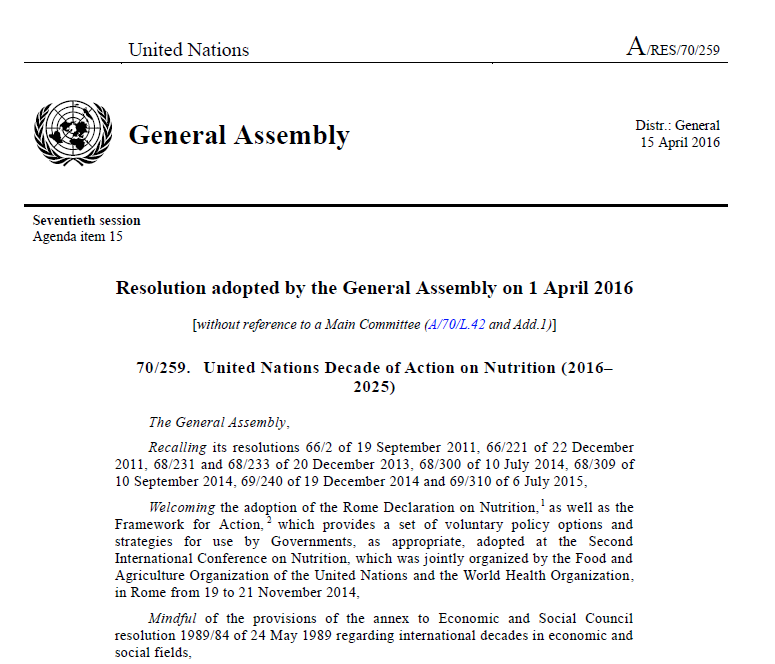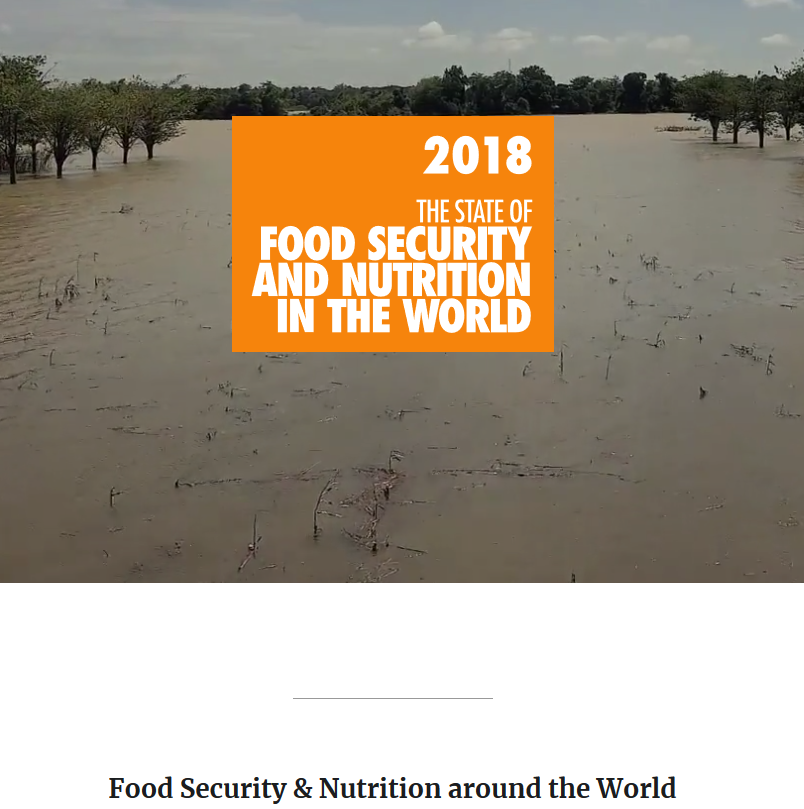Webinar: Protecting, Promoting and Supporting Breastfeeding amid COVID-19
Dr. Larry Grummer-Strawn, Technical Officer Dept. of Nutrition and Food Safety at the World Health Organization (WHO), presents to the International Coalition for Advocacy on Nutrition (ICAN) regarding the official guidance, challenges, and concerns with promoting, protecting, and supporting breastfeeding in the time of COVID-19. The WHO continues to recommend mothers with suspected COVID symptoms who choose to breastfeed can as long as they practice proper respiratory and hand hygiene. Read more here.

